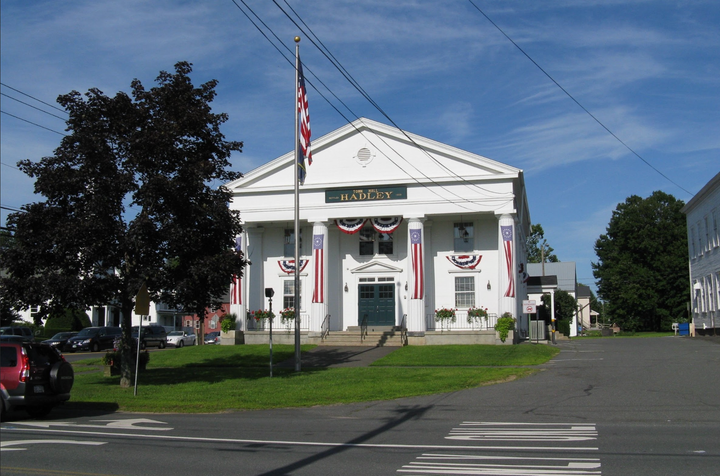Hadley Farmers Protest Trump’s Federal Funding Cuts
On March 23, approximately 300 farmers demonstrated against Trump’s recent federal funding cuts in front of the Hadley Farm Museum. Demonstrators were joined by several policymakers, including U.S. House Representative Jim McGovern.

On Sunday, March 23, in front of the Hadley Farm Museum, around 300 farmers demonstrated against Trump’s recent federal funding cuts with the support of several policymakers, including U.S. House Representative Jim McGovern.
“I’m worried that the Trump administration is moving away from supporting our New England farms and instead … want to prop up big corporate farms,” said McGovern. Local farms are struggling to keep up with corporate competition amidst the freezing of critical funds that go toward agriculture grants as well as the increased termination of government workers.
“They’re breaking legal contracts. They’re shutting down local USDA [United States Department of Agriculture] offices that serve our communities. They’re laying off workers that, again, serve New England farms,” continued McGovern.
Kerry Taylor, manager of Brookfield Farm and one of the primary organizers of the event, echoed McGovern’s sentiments. “A lot of these programs specifically help small and mid-sized farmers … they help us conserve soil and water where we farm … they help us do our jobs better. It’s like an extra layer of attacks [and] it’s really frustrating,” she said.
Taylor was motivated to protest because of the drastic increase in layoffs on federal and local levels. She reached out to groups of Pioneer Valley farmers who were frustrated with recent events, some who are directly affected by the cuts and funding freezes.
One of the speakers, Annie Diemand of Diemand Farm, outlined a project to build a solar array on her farm, which would cover 50% of their energy costs. Diemand Farm received a 139,000-dollar grant from the Rural Energy for America Program (REAP). This money would cover a portion of the cost needed to build the project, with the rest being paid for through loans.
“The reason we chose to do such a big array was because we were getting help from the federal government and thinking [that] the money … will come … to us, and then we’ll be able to pay down the loan,” she said. After taking out the portion acquired through loans, Trump’s freeze on federal spending froze Diemand’s grant money.
“It was kind of scary thinking, ‘Holy crap, how are we going to do this?’ We’re ankle-deep in it, and we’ve already put in a lot of money, so we should just keep going, whether or not we get the grant,” she said.
Recently, Trump’s recent policy have also forced grant writers to eliminate certain wording in proposals. “If you have anything to say about climate change or DEI [Diversity, Equity, and Inclusion], you have to reword your grant, or else you may not get it,” said Diemand. This greatly increases the administration’s agenda-setting capabilities.
“I don’t believe that the freezing of funds that Congress appropriated or the termination of contracts that they have with local farmers is legal. [Trump’s administration] is behaving in a way that, quite frankly, seems to be unlawful,” said McGovern.
Protestors said the cuts would not only put more pressure on farmers but also increase the demands on state governments.
“I would assume our state’s probably going to … try to offer some type of assistance down the road if this doesn’t change,” said Harrison Bardwell, owner and operator of Bardwell Farms.
McGovern, however, acknowledges the state’s limited ability “[The state] can’t make up for the shortfall of all the cuts that the Trump administration is making.”
With the farming season approaching, the coming months bring even more uncertainty, and busy schedules limit the ability of frustrated farmers to voice opinions.
“I gotta farm,” Taylor laughed when asked about organizing future protests.
“I do not have a next plan. Not yet.”




Comments ()